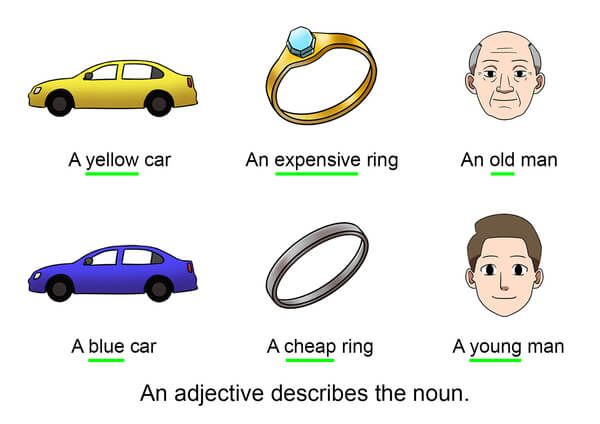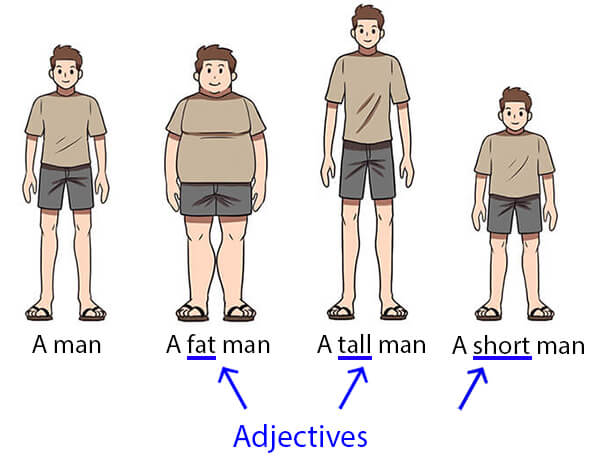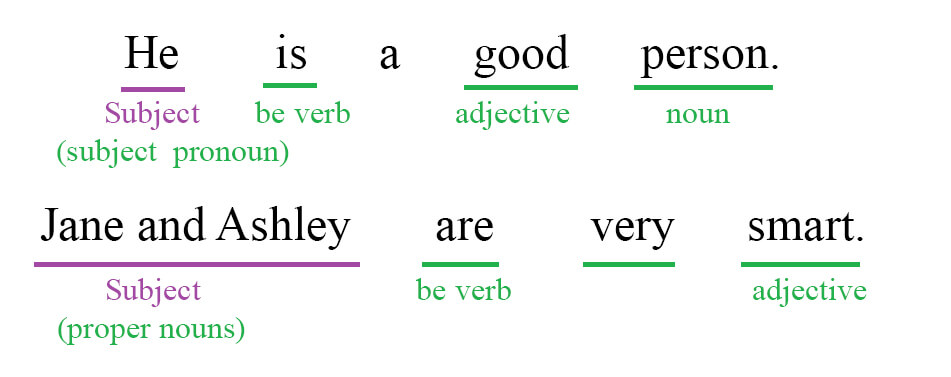Basic Adjectives
- Adjectives usually come before the noun. E.g. "This is a nice dog."
- Adjectives can come after a linking verb. E.g. "She is happy."
- Basic adjectives describe color, size, shape and other qualities of a noun.
- Examples of adjectives include 'black' (color), 'big' (size), and 'cheap' (price).
Adjectives are words that describe or modify other words, mainly nouns. Adjectives give more information about the noun. It describes the noun. An adjective can contain information about the noun's shape, size, age, color, feeling, or taste. They make our sentences more detailed and interesting.

Position of Adjectives
You place the adjective before the noun.
Examples:
-
She is a beautiful girl.
Subject ("She") + be verb / linking verb ("is") + article ("a") + adjective ("beautiful") + noun ("girl")
-
There is an interesting picture.
Here, 'interesting' is the adjective. Note, the article is "an", not "a".
-
These are nice shoes.
Here, 'nice' is the adjective.

You can also put an adjective after a "be" verb, or a verb like "seem", "look", etc. "is", "are", "be", "look", and "seem" are called a linking verb.
Examples:
-
The boy is tall.
Subject ("The boy") + be verb / linking verb ("is") + adjective ("tall")
-
She is happy.
"is" is the linking verb and "happy" is the adjective.
-
They are tired.
"are" is the linking verb and "tired" is the adjective.

Types of Basic Adjectives
There are many types of basic adjectives, such as words that indicate color, size, shape, taste, feel, or age. Here, let’s focus on color, size, and shape:
Examples:
-
He has a black cat.
'black' is the adjective about color.
-
This is a big house.
'big' is the adjective about the size.
-
She has a cheap table.
'cheap' is the adjective about the price.
Pratique este tópico com o AI English Tutor
AI English Tutor irá lhe ensinar a gramática e praticá-la com você em formato de conversação. Além disso, mais de 100 questões práticas sobre este tópico para consolidar sua compreensão.
Experimente ALULA gratuitamente em seu telefone ou tablet








Você tem alguma dúvida sobre esta lição? Pergunte na seção de comentários, abaixo.